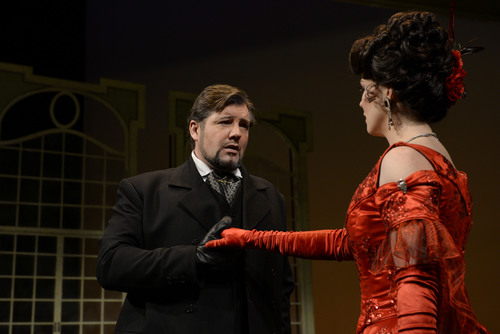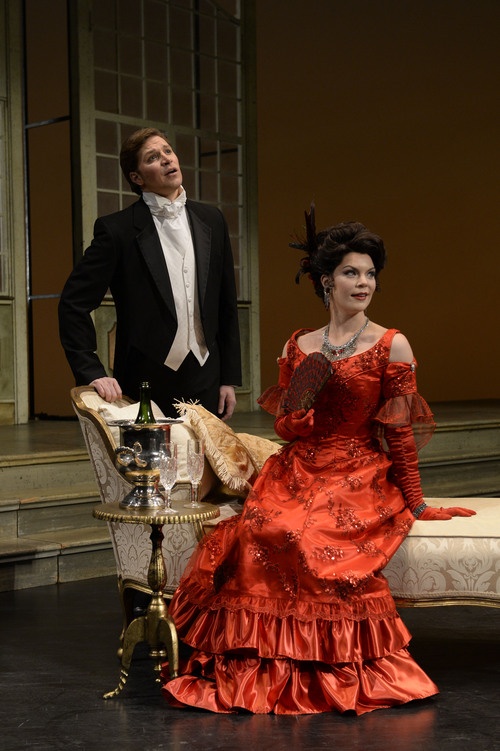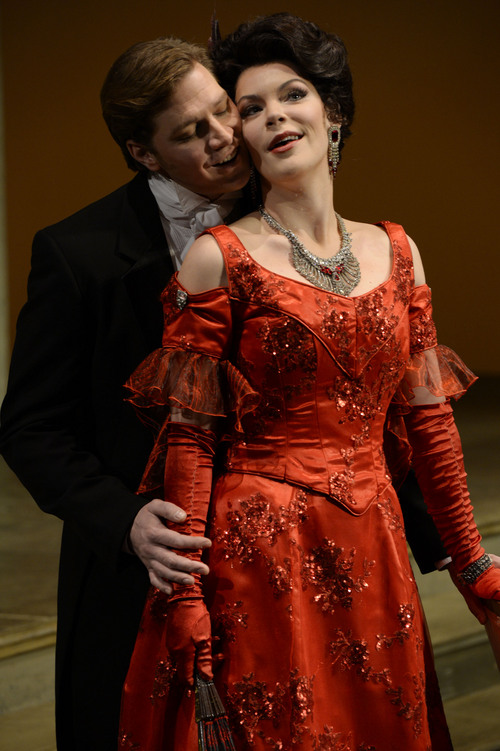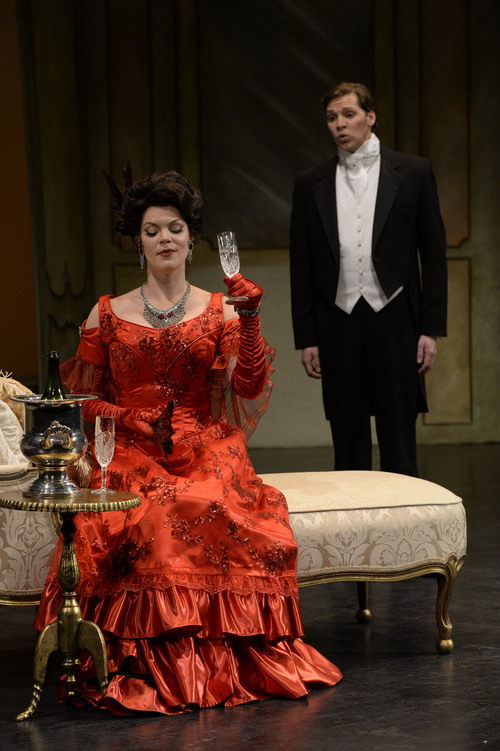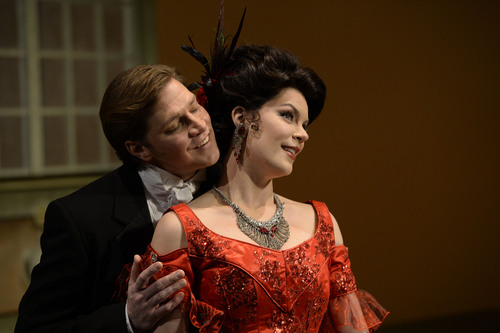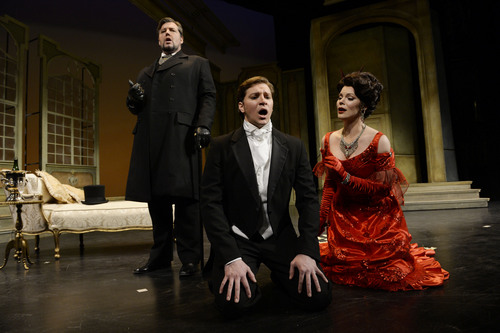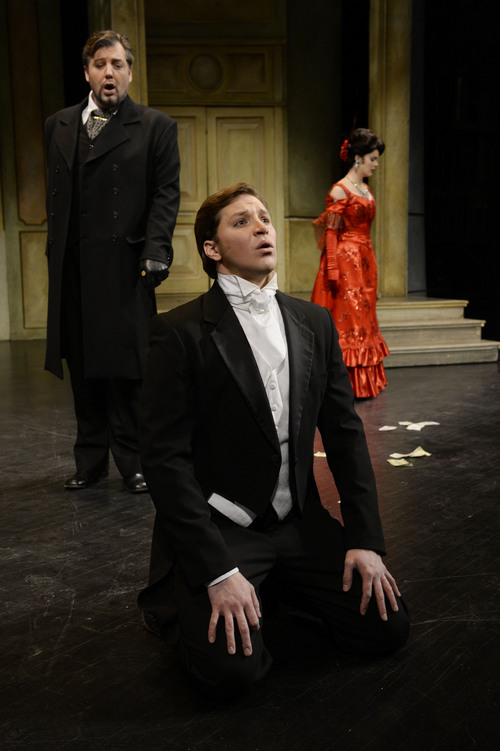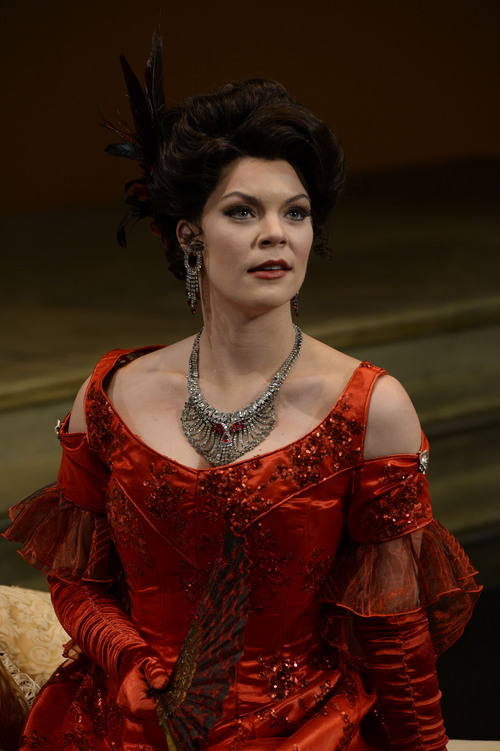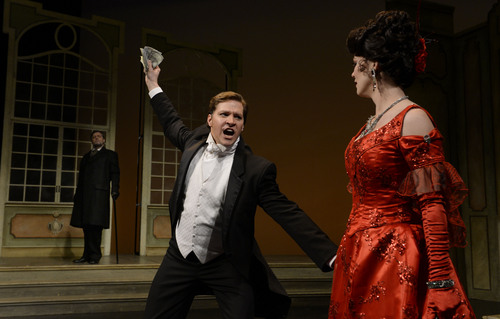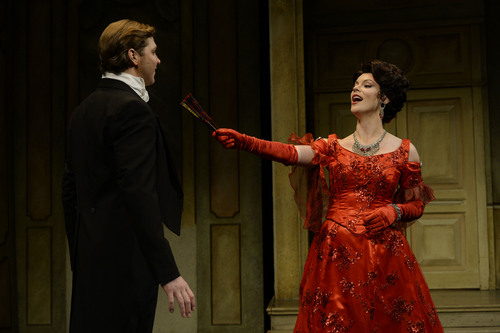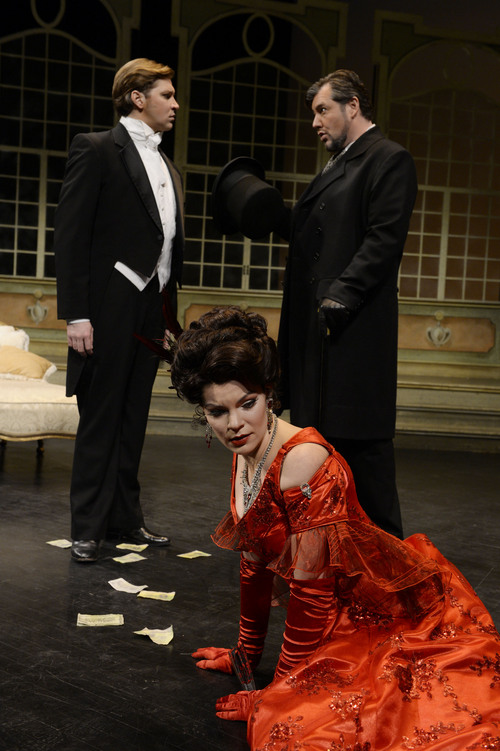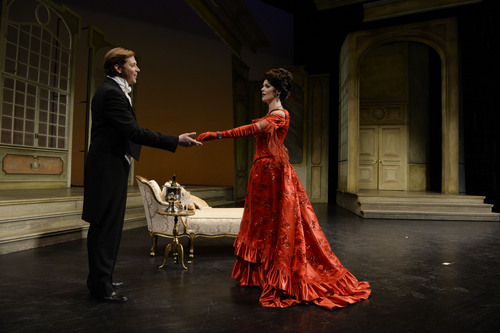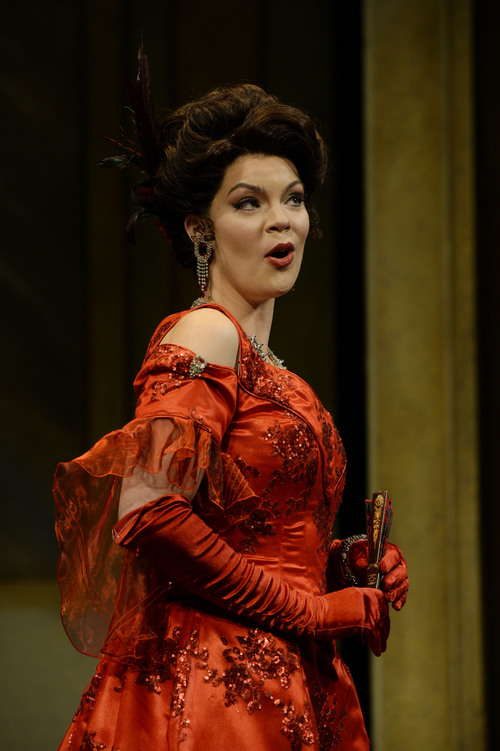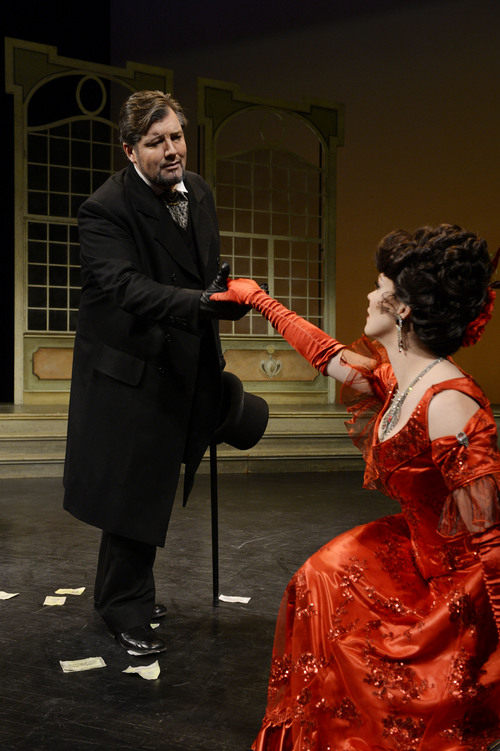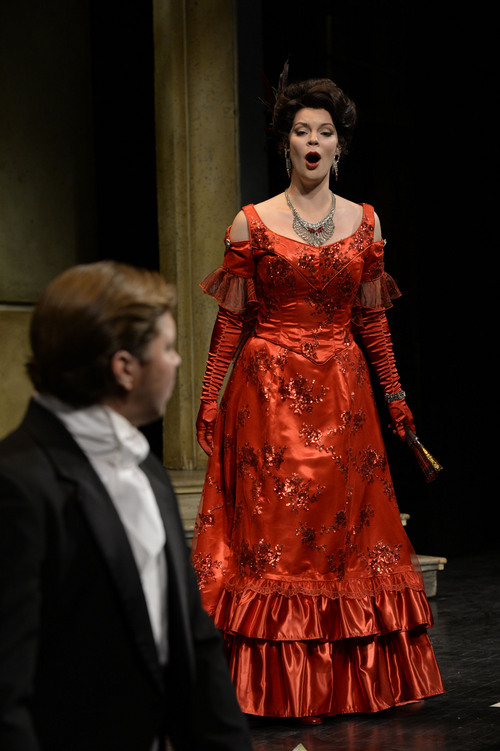This is an archived article that was published on sltrib.com in 2014, and information in the article may be outdated. It is provided only for personal research purposes and may not be reprinted.
Don't tell Sara Gartland that opera plots are outlandish. This is a woman who met her future husband in an opera house, suffered a stroke while Skyping him, then had her wedding held up for 90 minutes while nine groomsmen were freed from a broken-down elevator.
Gartland will sing the title role in the upcoming Utah Opera production of Verdi's "La Traviata": Violetta, who finds true love, gives it up for the noblest of reasons, then dies of consumption just moments after a joyful reunion with her lover.
When the opera opens, Violetta is one of the most celebrated courtesans in Paris. "She plays the game of society very well," Gartland said. "She has the most wealth, a beautiful home, a lavish lifestyle. … She knows how to get what she wants and needs. I personally am not the best at that."
But the next chapter in Violetta's story rings true for Gartland. The heroine suffers a coughing fit at a party but is determined not to let her guests know she is ill. Gartland was similarly determined not to let a health crisis stop her from singing in a San Francisco production of Wagner's "Die Walküre." She was hospitalized for four days after suffering a stroke, but few people knew of her condition aside from her parents, the company manager and tenor David Lomelí — with whom she'd been in a long-distance relationship ever since he caught her attention with his passionate portrayal of Alfredo in "La Traviata" two years earlier. She didn't want anyone treating her differently, she said, so she hid her heart monitor under her costume for 28 days.
Gartland has sung with Utah Opera twice before; she played Alexandra in Marc Blitzstein's "Regina" in 2009 and Curley's Wife in Carlisle Floyd's "Of Mice and Men" in 2012. This is her first time playing Violetta, which she calls "a beast of a role," not just because the character is onstage for all but a few minutes, but because "it's such an iconic role," she said. "Everybody [in the audience] has an idea of what they want Violetta to be. Every soprano makes it her own."
Her leading man, tenor Cody Austin, considers Alfredo the most relatable role he has sung. "I am Alfredo in real life," he said. "Alfredo is me to a T." While he hopes he's a bit more mature than Alfredo — helping your wife deliver your second child in the doorway of your home will do that, perhaps — he relates to the character's ardent, impetuous personality and emotional transparency. He loves portraying Alfredo's journey, from infatuation to domestic bliss to heartbreak over Violetta's apparent betrayal. And he's always devastated when Violetta dies; fortunately for him, he said, he gets to stop singing a couple of minutes before that happens.
"You have to be vulnerable," he said. "You open up and let the audience see your soul. The audience will feel it with you if you're vulnerable."
Stage director José María Condemi is fascinated by Violetta's emotional journey. She starts the opera as a party girl, albeit an exceptionally intelligent and sophisticated one. She is drawn to Alfredo because he recognizes qualities in her that other people don't, and she devotes herself completely to their life together — until his father, Giorgio Germont, pays her an unexpected visit. He tells her that his daughter's marriage prospects are shaky because of the family's connection to Violetta and urges her to leave Alfredo.
"She identifies with this girl who has a dream of true love and wants to give her that gift," Gartland said.
The elder Germont's later actions inspire Condemi, though. When Alfredo angrily renounces Violetta at a party, Germont publicly chastises him. "He doesn't have to make a public show of compassion for a courtesan," the director said. "This is a big, big thing."
Conductor Robert Tweten, a frequent guest at Utah Opera, agreed that "La Traviata" is "simple and complex at the same time" — complex because Verdi used compositional techniques, such as thematic foreshadowing, that today's listeners take for granted but that were novel when the opera premiered in 1853; simple because of the intimacy and pathos of the story.
When Violetta sings goodbye to Alfredo in the opera's second act, "you can't help but feel something," Tweten said.
"There's such honesty to the music," Condemi said. "It bypasses the brain and goes straight to the heart."
Pretty woman
Utah Opera presents Giuseppe Verdi's "La Traviata." The opera is sung in Italian, with supertitles in English.
Where • Capitol Theatre, 50 W. 200 South, Salt Lake City
When • Opens Saturday, 7:30 p.m.; evening performances continue Jan. 20, 22 and 24, with a 2 p.m. matinee Jan. 26.
In a nutshell • Carefree courtesan Violetta finds love with the impetuous Alfredo — until Alfredo's father implores her to end the relationship because of the embarrassment it has brought to his family.
Tickets • $18 to $95 ($5 more on performance day) at http://www.utahopera.org or the Capitol Theatre box office
Running time • About 2 hours and 40 minutes, including intermission
Learn more • Utah Opera principal coach Carol Anderson will give free lectures at the back of the house an hour before curtain; the company's artistic director, Christopher McBeth, will lead a Q&A on the mezzanine after each performance. Additional background information is at http://utahopera.org/backstage/category/online-learning-2/.


